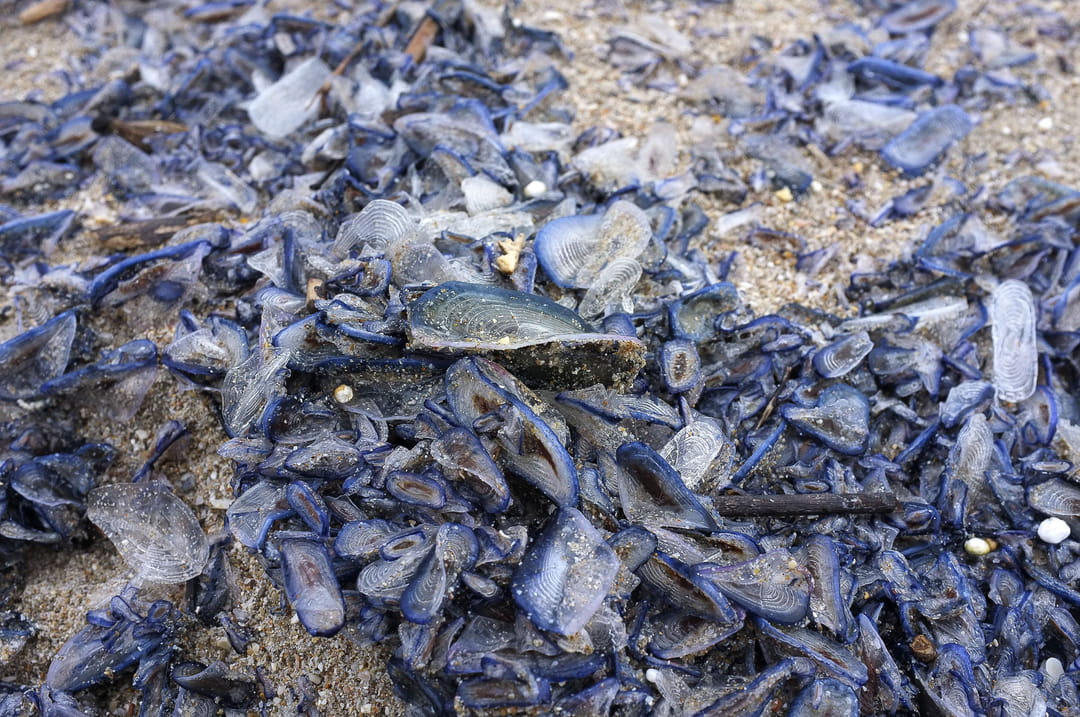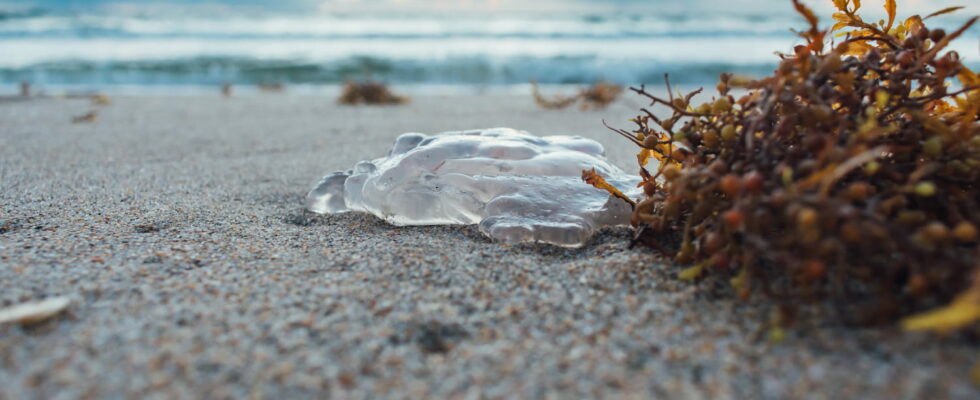Jellyfish have invaded the beaches of France. This July, they are well established. Here are the most affected places.
The first brave swimmers can testify: the jellyfish were back at the end of spring. Usually, you have to wait for warm periods to see them appear, but the date of their arrival seems to be getting earlier and earlier each year. Global warming is one of the factors that can explain this phenomenon. The rise in water temperatures leads to early sexual maturity in jellyfish and therefore a faster reproduction rate. Because of pollution, some of their predators such as sunfish or turtles are also less and less numerous. Conversely, as a result of global warming, they have more plankton at their disposal to feed on and this is moved by sea currents towards the coasts.
Jellyfish are therefore more numerous and inclined to move closer to the beaches. They are also now more accompanied by their cousins the velella. Equipped with a sort of sail, they can only move with the winds and currents, running aground en masse on the beaches during storms. However, they are less stinging than jellyfish.

On the Mediterranean coasts in particular, thousands of these marine animals were spotted as early as Ascension Day weekend. At the beginning of July, they are already back on the Côte d’Azur, particularly in Nice, Antibes, Toulon, Marseille, but also Roquebrune and Juan-les-Pins. Corsica is also affected.
In the Atlantic, the tides carry more jellyfish offshore, but they can still be present on beaches. In addition, they are not reported as much as in the South because they are less stinging species that live in the ocean and there are fewer bathers.
If you want to check where the jellyfish are for your vacation, a participatory map is made available to bathers by the Acrian office specializing in the processing of satellite data. As a reminder, in the event of a sting, it is recommended to rinse the affected area with seawater and remove any pieces of tentacles using tweezers. If symptoms worsen, it is necessary to consult a doctor.
